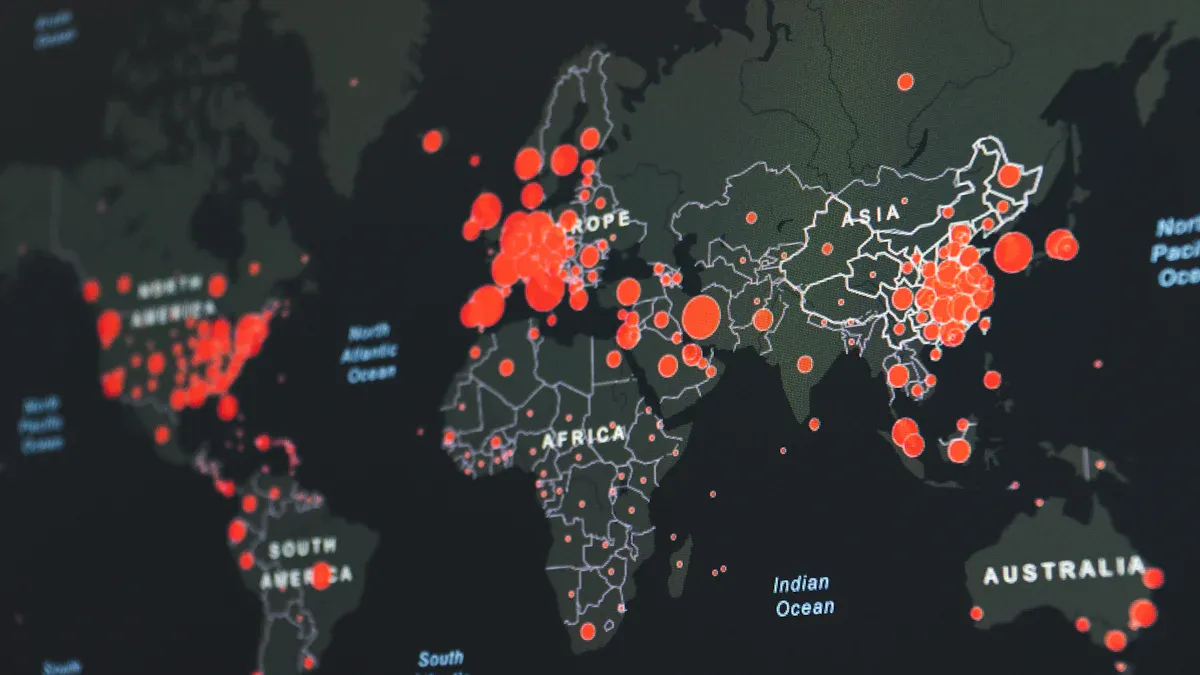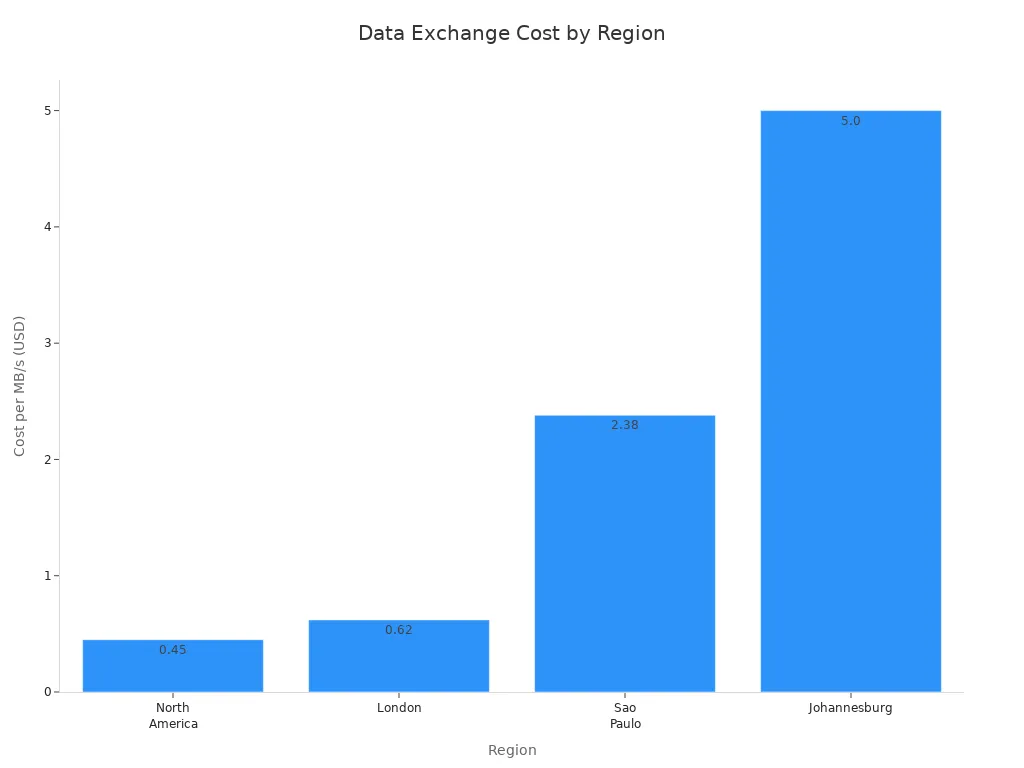Why AI Store Deployment Faces Unique Obstacles in the Global South

You face special problems when you try ai store deployment in the Global South. Local people often worry about being taken advantage of. Many systems do not use local languages. People may worry about data privacy if they cannot control their own information. It is also hard to find skilled workers.
Description | |
|---|---|
Exploitation | Worries about taking advantage of local people during AI deployment. |
Lack of Local Language Support | Systems are often made without thinking about local languages or culture. |
Data Privacy Concerns | Problems with using community data without asking or giving control. |
Competition for Talent and Resources | It is hard to find and keep skilled workers in the AI field. |
Global AI fears keep growing. You need to know these facts before you start any digital change.
Key Takeaways
AI deployment in the Global South has special problems. People worry about being taken advantage of and about data privacy. It is important to know about these problems for AI to work well.
Bad internet and power problems make AI stores hard to run. People should spend money to get better internet and electricity. This will help AI projects in these places.
There are not enough skilled workers for AI projects. Local training programs can help people learn new skills. This will make the AI workforce stronger.
AI systems must fit the local culture. AI tools should use local languages and respect customs. This helps people trust and use AI more.
Unclear rules make AI deployment harder. Learn about local laws and support good rules. These rules should keep data safe and help AI grow.
Infrastructure Barriers for AI Store Deployment

Connectivity Issues
It is hard to get good internet in the Global South. Many places do not have fast or steady internet. Only about one out of four people in sub-Saharan Africa can use good internet. This makes it tough to run AI stores that need to be online all the time.
Note: Not having enough digital infrastructure and steady internet are big problems for ai store deployment in these areas.
There is a big difference between rich countries and the Global South. In 2019, 87% of people in rich countries used the internet. In the least developed countries, only 19% did.
Category | Developed Countries | Least Developed Countries |
|---|---|---|
Internet Usage (2019) | 87% | 19% |
Internet Usage (Global Avg.) | 63% | 27% |
Data costs much more in the Global South. For example, in Johannesburg, you pay $5.00 for each MB/s. In North America, it is only $0.45 for each MB/s.
Region | Cost of Data Exchange (USD) |
|---|---|
North America | $0.45 per MB/s |
London | $0.62 per MB/s |
Sao Paulo | $2.38 per MB/s |
Johannesburg | $5.00 per MB/s |

There are other problems too. In India and Brazil, weak digital infrastructure slows down AI use. Many AI tools are made for rich countries. They do not work well where internet is weak. In healthcare, AI systems trained on data from rich countries may not work right in the Global South.
Power and Cloud Access
AI store deployment needs steady electricity. Many places in the Global South have blackouts often. Power cuts and weak power grids make it hard to keep AI stores working. Data centers use a lot of power. In 2024, data centers around the world used 415 terawatt-hours (TWh). This number may be three times bigger by 2035. In sub-Saharan Africa, homes may use up to 500 TWh by 2030, but much of this power is not steady.
Tip: Bad electricity and power cuts are main reasons why AI stores do not work well in these places.
Cloud access is also a big issue. Many countries do not have enough local data centers. People often have to use foreign cloud providers. This makes things slower and more costly. Weak internet and low bandwidth make it even harder to use cloud AI services. Old hardware and high import taxes slow things down more.
There is a clear gap between the Global South and rich countries. In rich countries, you get strong internet, steady power, and many local data centers. These things make ai store deployment easier and more stable.
If you want to do ai store deployment in the Global South, you must know about these special infrastructure problems. You need to plan for high costs, slow internet, and power issues that are not a problem in most rich countries.
Data and Talent Gaps

Data Quality and Availability
AI needs good data to work well. In the Global South, data is often missing or not complete. Many places still use paper records. This makes it hard to collect and share information for AI training. Most AI systems use data from rich countries. These systems may not work well in local places.
Many low- and middle-income countries do not have enough open health data.
Old paper methods cause missing data and mistakes.
Local data can have language problems and low health knowledge, so it is less useful for AI.
AI models trained on data from other places may not work well in your area.
Different ways of collecting data make it hard to mix information from many sources.
Note: You must think about privacy when you collect personal data for AI. In places like India, many types of health records make it hard to have one standard system.
Talent Shortage
You need skilled people to build and run AI systems. In the Global South, there are not enough trained AI workers. This slows down ai store deployment and makes it hard to keep projects going.
Initiative | Key Focus Areas | Results Achieved |
|---|---|---|
Global South-led responsible AI solutions | Custom curricula, workforce diversity, AI for education | Smaller skills gap, better care, stronger provider-patient relationships |
AI Learning Opportunities in Nigeria | Offline AI tools, local control of digital tools | Higher test scores, empowered teachers, more independence for local communities |
Some programs help close the skills gap. In Nigeria, teachers who used offline AI tools saw test scores go up by 0.31 standard deviations. This is like two years of normal learning. Girls improved almost twice as much as boys. These programs show that local control and training can help your community become more independent.
Tip: When you support local talent, you help your region grow stronger and more independent in AI.
Cultural and Market Challenges
Cultural Fit
Many AI systems do not match local cultures. Most AI tools come from Western countries. These tools often miss local customs and languages. They also miss local ways of thinking. Sometimes, AI does not get your jokes or sayings. It may not understand your daily habits. This can make people feel left out.
AI systems use Western ideas, so they may not fit your needs.
Many models do not work well with local languages or dialects.
Cultural bias in AI can cause unfair results or stereotypes.
AI tools may not get local humor or special sayings.
You need AI that understands your world. If AI does not connect with your culture, people may not trust it. They may not use it. Local datasets and language support help make AI fair and useful for everyone.
Market Readiness
Market readiness affects how you use new AI tools. In the Global South, people are careful but hopeful about AI. They want to see how AI helps in healthcare and education. Many also worry about risks, losing jobs, and privacy.
Region | Attitude Towards AI | Key Concerns | Regulatory Needs |
|---|---|---|---|
Global South | Risks, bias, job loss | Flexible rules, local changes | |
Developed Regions | Excited about AI | Fewer worries | Set rules like GDPR |
People want rules that fit their own needs. They do not want to copy foreign laws. In Latin America, people ask for flexible rules for their own context. This careful way helps build trust. It makes ai store deployment more likely to work.
Tip: When you plan for AI in your market, listen to local people. Build trust by respecting culture and making rules that protect everyone.
Governance and Regulation
Policy Uncertainty
You face many unknowns when you try to deploy AI stores in the Global South. Many countries do not have clear rules for AI. This makes it hard for you to plan and invest. You may see new policies appear quickly, but they often lack local input. Most AI rules come from the US, Europe, or China. Only a small part comes from Latin America or Africa. This means your needs and concerns may not get enough attention.
Developed countries focus on stopping AI misuse, like fake news or weaponization.
In the Global South, you worry more about missing out on growth and jobs if AI rules are not right.
Two-thirds of all AI policies since 2011 came from the US, Europe, or China.
Only 7% of these policies came from Latin America and Africa.
Some countries are starting to act. South Africa has a Draft National Artificial Intelligence Plan. India is working on new AI rules. The African Union wants to use AI to help farmers and improve food security. These steps show that local leaders see the need for their own AI policies.
Tip: Watch for new laws and plans in your country. Local rules can change fast and may affect your AI store project.
Data Privacy
Data privacy is a big concern for you in the Global South. Many people worry about how AI uses their personal data. You may not have strong laws to protect your privacy. Most AI innovation happens in a few countries, so local needs often get ignored. You need rules that fit your own context.
Local rules for data privacy are often missing or weak.
AI tools from other places may not follow your privacy needs.
Monitoring tools can help you check if AI follows local laws.
Unethical AI use can make social gaps worse if data is biased.
Without rules, AI can harm people’s lives.
Strong national data protection laws help keep your data safe.
Note: You should push for better privacy laws and use tools that check if AI follows local rules. This helps build trust and keeps your data safe.
You will find special problems when trying ai store deployment in the Global South. There are not enough computers and internet. There are not enough skilled workers. There is less money for these projects than in richer places. To make things better, you can:
Spend money to get better internet and power.
Teach and train people in your area.
Use open data and national numbers to get better information.
Working with other countries helps you learn and get better skills. When you start AI projects, think about what local people need and how to help them for a long time.
FAQ
What makes AI store deployment harder in the Global South?
You face more problems with internet, power, and skilled workers. Many places do not have strong digital systems. You also deal with higher costs and fewer local data centers.
How can you improve AI adoption in your community?
You can support local training programs. You can ask for better internet and power. You can help collect local data. These steps make AI work better for your area.
Why does local culture matter for AI stores?
AI works best when it understands your language and customs. If AI does not fit your culture, people may not trust or use it. Local input helps make AI fair and useful.
What should you know about data privacy with AI?
You must protect your personal data. Many places do not have strong privacy laws. You should ask how your data gets used and push for better rules.
See Also
Starting An AI-Driven Convenience Store With Low Costs
The Future of Retail Lies in AI-Enhanced Stores
Transforming Online Retail Management With AI Tools
